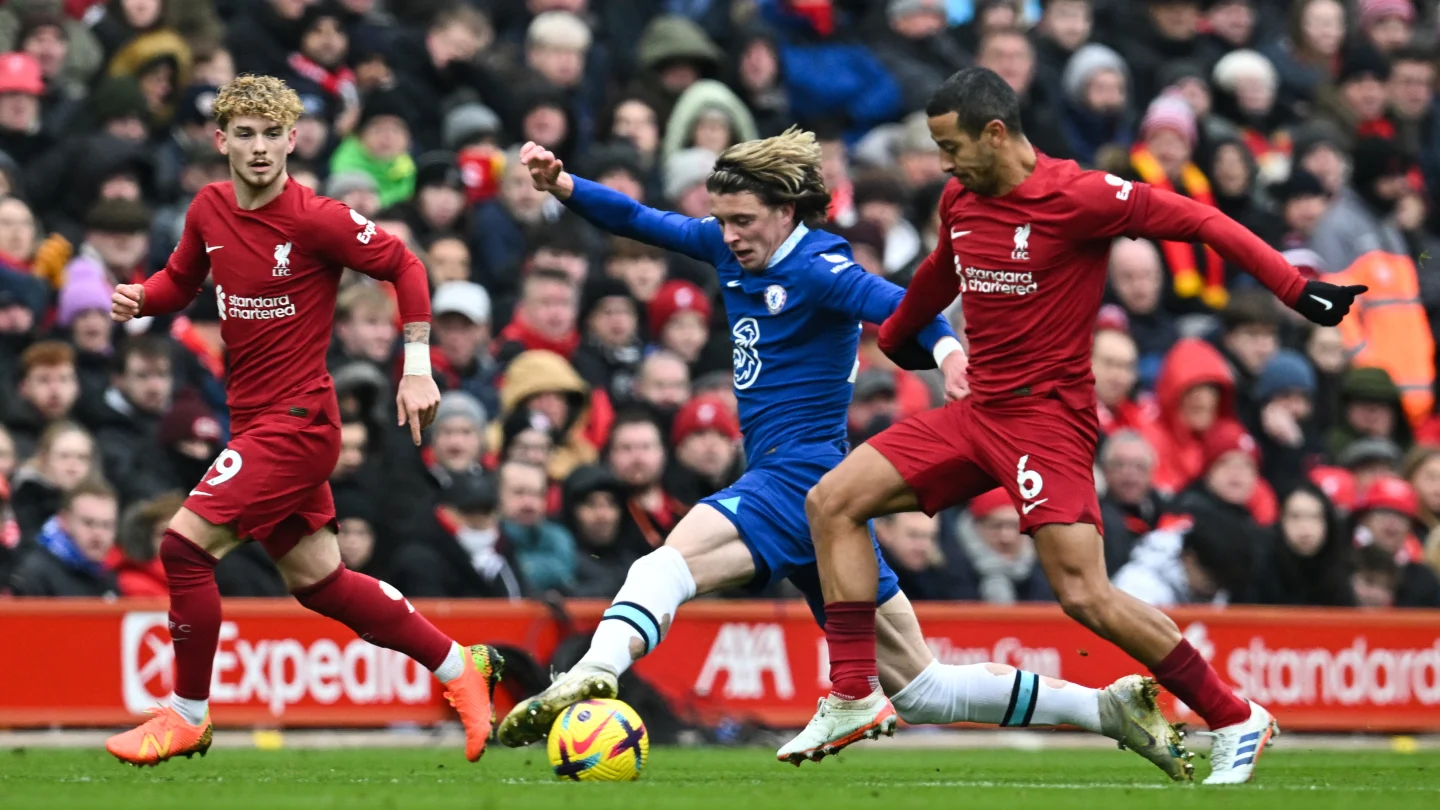The Story Behind the Unusual Matchweek 37 Schedule in the 2024/25 Season
The Premier League is a competition known for its predictability when it comes to scheduling. Most weekends, fans can count on a full round of action, especially on Saturdays — traditionally the heart of English football. But in Matchweek 37 of the 2024/25 Premier League season, something unusual has happened: there are no Premier League matches on Saturday.
For many fans, broadcasters, and analysts, this raised questions. Why has such a pivotal week in the football calendar been reshaped? What does this mean for the competition and its traditions? And how does the FA Cup final play into this?
This article takes a deep dive into the reasoning, context, and consequences of this scheduling shake-up — helping fans understand not just what happened, but why it matters.
A Historic Scheduling Shift
When and Why Did the Change Happen?
The roots of this change trace back to April 2024, when the Football Association (FA) and the Premier League reached a joint agreement to reshuffle parts of the domestic football calendar.
As part of this new arrangement, the FA Cup final was granted its own exclusive Saturday slot, free of any Premier League fixtures on the same day. The purpose of this was clear: to elevate the FA Cup final — long considered the showpiece event of English domestic football — and restore its status as a standalone occasion.
The FA’s Official Statement
In their 2024 announcement, the FA said:
- “The Emirates FA Cup Final will now take place on the penultimate weekend of the Premier League season, on an exclusive Saturday with no Premier League fixtures taking place on the same day.”
- In addition, the FA further clarified:
- “There will be no Premier League games on the Friday night before the Final, to allow focus on the build-up to the showpiece event.”
- This move was widely seen as a symbolic and strategic effort to give the FA Cup final more space in the crowded footballing landscape, where it often competes with other high-profile events.
So Why Are Premier League Games Happening on Friday?
Despite the agreement to avoid Premier League matches on the Friday before the FA Cup final, two fixtures have still been scheduled for Friday, May 16:
- Aston Villa vs Tottenham Hotspur (7:30pm BST)
- Chelsea vs Manchester United (8:15pm BST)
This apparent contradiction sparked confusion. But both matches have been approved due to exceptional circumstances.
Chelsea vs Manchester United: A Women’s FA Cup Conflict
The first fixture — Chelsea vs Manchester United — was rescheduled to Friday evening due to both clubs’ participation in the Women’s FA Cup final.
The women’s final, also held at Wembley, is a marquee event in its own right. With both Chelsea Women and Manchester United Women facing off in that final, having their men’s teams play over the same weekend was deemed logistically and practically difficult.
Thus, to ensure media coverage, fan attendance, and club logistics could be managed without conflict, the men’s match was moved to Friday.
Aston Villa vs Tottenham: A European Adjustment
The second Friday fixture — Aston Villa vs Spurs — was moved at the request of Tottenham Hotspur, due to their qualification for the Europa League final against Manchester United.
The all-English final is scheduled to take place later that month in Bilbao, and in a rare show of cooperation, both clubs requested to play their domestic matches early in Matchweek 37 to ensure equal rest before the European showdown.
The Premier League granted this exception to maintain competitive balance and player welfare. Hence, both Friday fixtures are legitimate deviations from the standard protocol.
The Reimagined Matchweek 37 Fixture List
With Saturday cleared for the FA Cup final, the remaining Premier League matches have been stretched across multiple days, offering fans a marathon of top-flight football spread out between Friday and Tuesday.
Matchweek 37 Fixtures (All Times BST)
- Friday, May 16
- 7:30pm – Aston Villa vs Tottenham Hotspur (Sky Sports)
- 8:15pm – Chelsea vs Manchester United (Sky Sports)
- Sunday, May 18
- 12:00pm – Everton vs Southampton (TNT Sports)
- 2:15pm – West Ham United vs Nottingham Forest (Sky Sports)
- 3:00pm – Brentford vs Fulham
- 3:00pm – Leicester City vs Ipswich Town
- 4:30pm – Arsenal vs Newcastle United (Sky Sports)
- Monday, May 19
- 8:00pm – Brighton vs Liverpool (Sky Sports)
- Tuesday, May 20
- 8:00pm – Crystal Palace vs Wolves
- 8:00pm – Manchester City vs Bournemouth
- This staggered schedule has benefits for broadcasters, as it allows for maximum viewership and media coverage. However, it has also sparked debate among traditionalists who favor a compact Saturday matchday.
The Return of the FA Cup as a National Event
Why the FA Cup Final Is So Important
The decision to give the FA Cup final a solo Saturday reflects the FA’s effort to revive the prestige of the tournament, which in recent decades has lost some of its shine due to fixture congestion and the dominance of the Premier League.
Traditionally, the FA Cup final was a national event — often the only club match played that day — drawing huge TV audiences and creating a festival-like atmosphere.
By removing Premier League fixtures from the day, the FA hopes to recapture that unique identity. It’s also symbolic: after years of being treated as an afterthought by some clubs, the FA Cup is being given center stage once again.
How Does This Affect the Title Race and European Qualification?
The penultimate weekend of any Premier League season is usually one of high drama — with title battles, relegation fights, and European qualification on the line. So, moving matches around carries real consequences.
Champions League Race
Several clubs are still fighting for top-four spots, including Chelsea, Spurs, and Manchester United. Playing on Friday means some teams will set the tone early, putting pressure on rivals who play on Sunday or Monday.
Chelsea vs United, in particular, is massive. The result could define whether one or both teams will play Champions League or Europa League football next season.
Relegation and Mid-Table Battles
On Sunday, matches like Everton vs Southampton and Leicester vs Ipswich could shape the relegation battle. For newly promoted clubs like Ipswich, every point is crucial to survival.
By clearing Saturday, all attention shifts to Sunday — providing the narrative tension and build-up that fans love.
The Commercial and Media Angle
Broadcasters Love It
From a media standpoint, spreading out the fixtures means more games get televised, which is a huge commercial win for rights holders like Sky Sports, TNT Sports, and Amazon Prime.
Rather than having six or seven games clash on Saturday afternoon, each day now has fewer matches with more focused coverage, offering fans an opportunity to watch multiple games live without overlap.
Fan Reaction: Mixed Opinions
While some fans appreciate the convenience of weekday matches and fewer clashes, others mourn the loss of a full Saturday football experience.
Traditionally, Saturdays are when families and friends gather at stadiums or pubs. For match-going fans, especially those who travel, Friday night or Monday night fixtures can be difficult due to work schedules and transportation.
- Man City drop Jack Grealish transfer hint as they launch stunning new kit for Club World Cup - June 5, 2025
- Madison Beer Shares Cheeky Bath Photo in Oscars Party Post - June 5, 2025
- Willow Name Meaning - June 5, 2025






